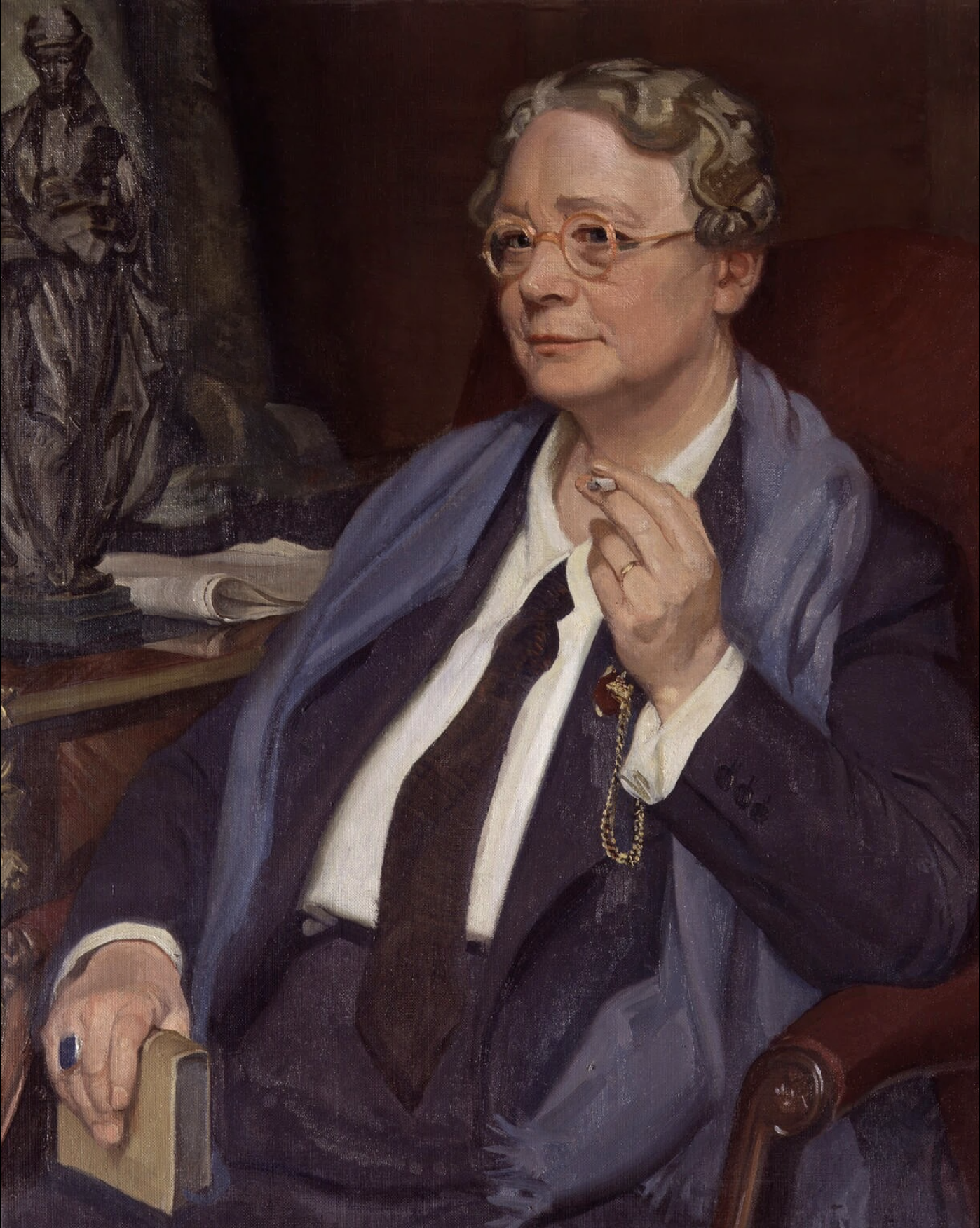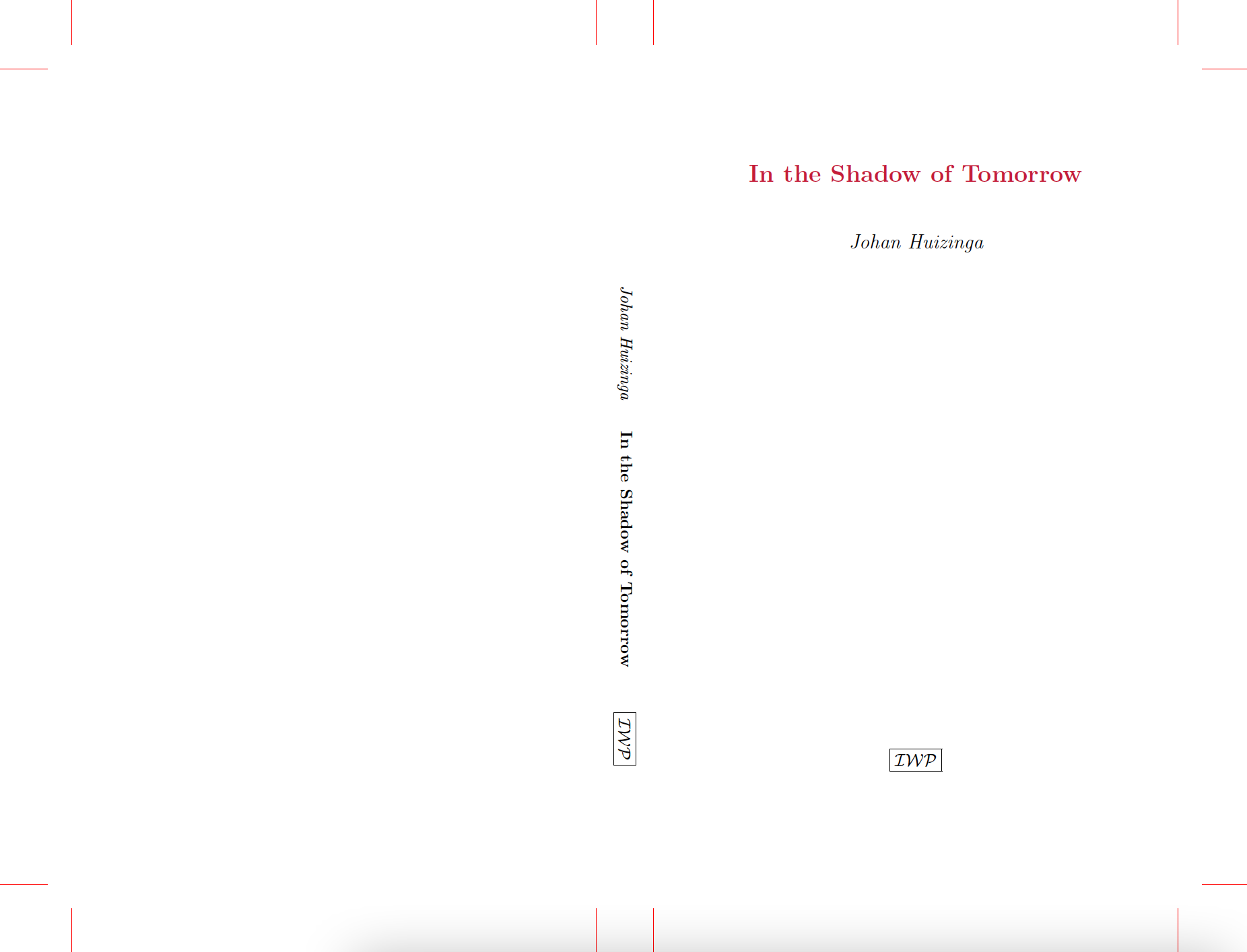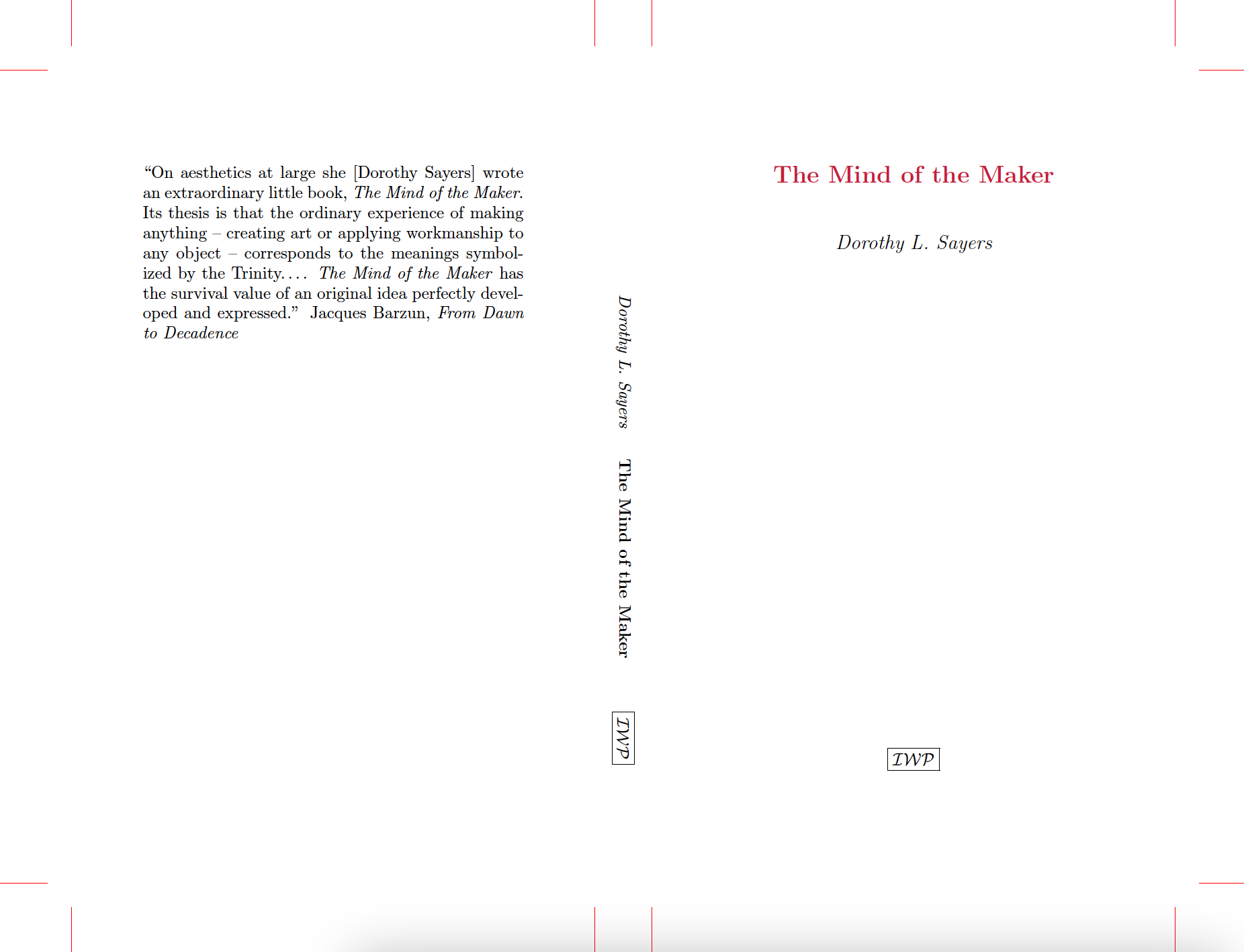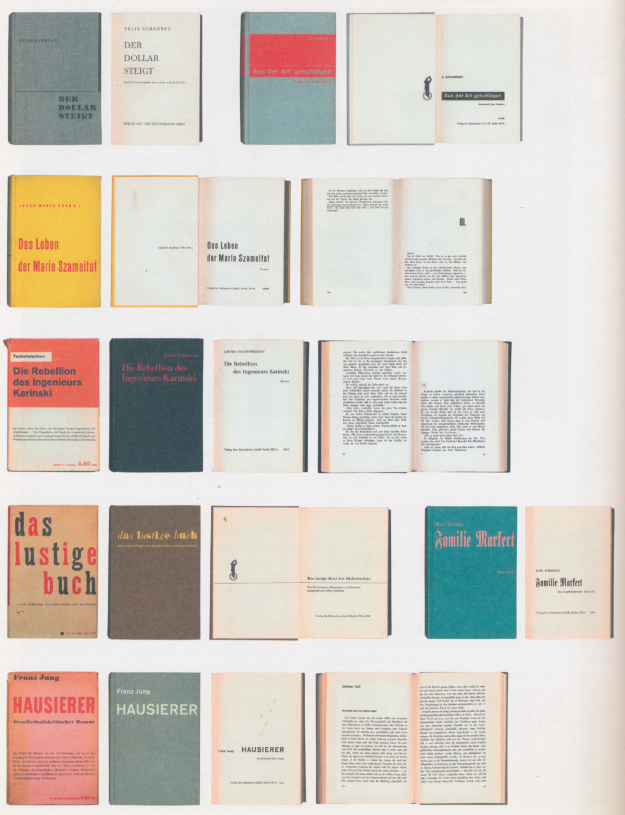Dorothy L. Sayers by Sir William Oliphant Hutchison, 1949–1950

Dorothy L. Sayers by Sir William Oliphant Hutchison, 1949–1950

Ordered: The Man Born to Be King by Dorothy L. Sayers 📚
habet mundus iste noctes suas et non paucas. – st. bernard
Next at IWP Books: In the Shadow of Tomorrow (1935) by Johan Huizinga.

From In the Shadow of Tomorrow (1935) by Johan Huizinga:
We are living in a demented world. And we know it. It would not come as a surprise to anyone if tomorrow the madness gave way to a frenzy which would leave our poor Europe in a state of distracted stupor, with engines still turning and flags streaming in the breeze, but with the spirit gone. Everywhere there are doubts as to the solidity of our social structure, vague fears of the imminent future, a feeling that our civilization is on the way to ruin. They are not merely the shapeless anxieties which beset us in the small hours of the night when the flame of life burns low. They are considered expectations founded on observation and judgment of an overwhelming multitude of facts. How to avoid the recognition that almost all things which once seemed sacred and immutable have now become unsettled, truth and humanity, justice and reason? We see forms of government no longer capable of functioning, production systems on the verge of collapse, social forces gone wild with power. The roaring engine of this tremendous time seems to be heading for a breakdown.
From The Mind of the Maker (1941) by Dorothy Sayers:
It is unpleasant to be called sinners, and much nicer to think that we all have hearts of gold – but have we? It is agreeable to suppose that the more scientific knowledge we acquire the happier we shall be – but does it look like it? It is encouraging to feel that progress is making us automatically every day and in every way better and better and better – but does history support that view?
Available at IWP Books.
From The Mind of the Maker (1941) by Dorothy Sayers:
It is common knowledge among school-teachers that a high percentage of examination failures results from “not reading the question.” The candidate presumably applies his eyes to the paper, but his answer shows that he is incapable of discovering by that process what the question is. This means that he is not only slovenly-minded but, in all except the most superficial sense, illiterate. Teachers further complain that they have to spend a great deal of time and energy in teaching University students what questions to ask. This indicates that the young mind experiences great difficulty in disentangling the essence of a subject from its accidents; and it is disconcertingly evident, in discussions on the platform and in the press, that the majority of people never learn to overcome this difficulty. A third distressing phenomenon is the extreme unwillingness of the average questioner to listen to the answer – a phenomenon exhibited in exaggerated form by professional interviewers on the staffs of popular journals. It is a plain fact that ninety-nine “interviews” out of a hundred contain more or less subtle distortions of the answers given to questions, the questions being, moreover, in many cases, wrongly conceived for the purpose of eliciting the truth. The distortions are not confined to distortions of opinion but are frequently also distortions of fact, and not merely stupid misunderstandings at that, but deliberate falsifications. The journalist is, indeed, not interested in the facts. For this he is to some extent excusable, seeing that, even if he published the facts, his public would inevitably distort them in the reading. What is quite inexcusable is that when the victim of misrepresentation writes to protest and correct the statements attributed to him, his protest is often ignored and his correction suppressed. Nor has he any redress, since to misrepresent a man’s statements is no offence, unless the misrepresentation happens to fall within the narrow limits of the law of libel. The Press and the Law are in this condition because the public do not care whether they are being told truth or not.
Available at IWP Books.

New at IWP Books: The Mind of the Maker (1941) by Dorothy L. Sayers.

From Constructive Citizenship (1927) by L. P. Jacks (Cited in Dorothy Sayers, The Mind of the Maker):
I am informed by philologists that the “rise to power” of these two words, “problem” and “solution” as the dominating terms of public debate, is an affair of the last two centuries, and especially of the nineteenth, having synchronised, so they say, with a parallel “rise to power” of the word “happiness” – for reasons which doubtless exist and would be interesting to discover. Like “happiness,” our two terms “problem” and “solution” are not to be found in the Bible – a point which gives to that wonderful literature a singular charm and cogency…. On the whole, the influence of these words is malign, and becomes increasingly so. They have deluded poor men with Messianic expectations… which are fatal to steadfast persistence in good workmanship and to well-doing in general… Let the valiant citizen never be ashamed to confess that he has no “solution of the social problem” to offer to his fellow-men. Let him offer them rather the service of his skill, his vigilance, his fortitude and his probity. For the matter in question is not, primarily, a “problem,” nor the answer to it a “solution.”
Cuckoo Policies by Theodore Dalrymple: “Stanford University has published, to much-deserved derision, a kind of index of prohibited words, that is to say words that could possibly cause anyone, even animals, distress. Of course, if you treat people as eggshells, eggshells is what they will become, especially if they derive some kind of benefit, financial or other, from their fragility.”
“Jakob Burckhardt said to his students that there is no such thing as a historical method. Bisogna saper leggere, he said (in Italian): ‘You must know how to read.’ And by this of course he did not mean speedreading or other devices, but that you must acquire the practice and particular quality of your reading.” (John Lukacs, A Student’s Guide to the Study of History)
Alan Jacobs (@ayjay) has an idea for a “great project, Cassiodorus College.” Including courses on: Memorization and Recitation; Reading: Natural and Formal Languages; Composition: Natural and Formal Languages (LaTeX!); The Visual Display of Quantitative Information; Mathematical Reasoning and Rhetoric; and Care of Plants and Animals (“an idea stolen from W. H. Auden”).
New at IWP Books: Journal in the Night (1950) by Theodor Haecker.

The Transparent Page by Beatrice Warde.
Printing demands a humility of mind, for the lack of which many of the fine arts are even now floundering in self-conscious and maudlin experiments. There is nothing simple or dull in achieving the transparent page. Vulgar ostentation is twice as easy as discipline. When you realise that ugly typography never effaces itself; you will be able to capture beauty as the wise men capture happiness by aiming at something else. The ‘stunt typographer’ learns the fickleness of rich men who hate to read. Not for them are long breaths held over serif and kern, they will not appreciate your splitting of hair-spaces. Nobody (save the other craftsmen) will appreciate half your skill. But you may spend endless years of happy experiment in devising that crystalline goblet which is worthy to hold the vintage of the human mind.
This is a Printing Office by Beatrice Warde.

“Here’s to Us! Who’s Like Us? Damn Few, and They’re All Dead,” by Damian at A Sunday of Liberty, and a Comment by Patrick Kurp at Anecdotal Evidence.
W. H. Auden reciting Doggerel by a Senior Citizen, the first few stanzas of which:
Our earth in 1969
Is not the planet I call mine,
The world, I mean, that gives me strength
To hold off chaos at arm’s length.
My Eden landscapes and their climes
Are constructs from Edwardian times,
When bath-rooms took up lots of space,
And, before eating, one said Grace.
The automobile, the aeroplane,
Are useful gadgets, but profane:
The enginry of which I dream
Is moved by water or by steam.
Reason requires that I approve
The light-bulb which I cannot love:
To me more reverence-commanding
A fish-tail burner on the landing.
By Phyllis McGinley: One Crowded Hour of Glorious Strife (1950) and In Praise of Diversity (1953)
From Theodor Haecker’s (1950) Journal in the Night:
The fact that language does not permit of calling machines ‘wonderful’ and ‘divine’ rests upon a generally accepted feeling. It is clear that these words cannot be used to describe the products of the machine, unlike so many products of man’s hand, and in particular, works of art. The human hand is a wonderful instrument by means of which the spirit, and at times even the Holy Spirit, with an absolutely immaterial intention, creates the difference between a mediocre mechanical work and a work of genius.
More Covers by Jan Tschichold

From Theodor Haecker’s (1950) Journal in the Night: “When he was ninety years old Prince Eugene said to a forester as old as himself: We still feel quite fresh and sound and healthy, and we hardly notice we are so old. – We do not, Your Royal Highness, but others do.”
Covers by Jan Tschichold

From Theodor Haecker (1950), Journal in the Night: “A curse on every wish that blurs the sight, paralyses the tongue, cramps the hand and prevents the truth being seen, said and written.”
From Theodor Haecker’s (1950) Journal in the Night:
When I am told that the German youth of today, the official youth, know nothing of two thousand five hundred years of Christian and adventist history, know nothing of it, do not wish to know anything of it and cannot be moved by it, I know it is true and I am sad. But when I am told that there is none among them who in his inmost being is moved by it, then I feel cheerful once again, for I do not believe it, and it is not true. They exist, and they are the aristocracy of the youth of this country. They will live under a cloud, as I do. But they will stand in the glory of an eternal light, as I shall do. And they will know it, as I too do.